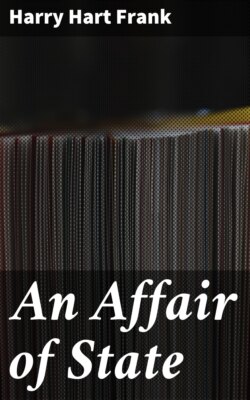Читать книгу An Affair of State - Harry Hart Frank - Страница 20
На сайте Литреса книга снята с продажи.
4
ОглавлениеTable of Contents
Gerald Matson anticipated war with Russia with the mingled confidence and impatience of one waiting for the last act of a play in which it is certain the villain will get his just deserts, the hero will get the girl, and everyone will live happily ever after.
While others in the Department had blinded themselves to the Soviet menace, it had always been plain to him, and he had never dodged speaking his mind on it. Sometimes this had not made him popular in the Department. In the first two Roosevelt administrations, when the Reds and their allies—the C.I.O., the New Dealers, the radicals and social planners—had been running the country, he’d been buried in the Visa Division. He’d been able to perform useful services there, however. He’d guarded the dam of immigration quotas, restrictions, and regulations against the stream of refugees from Germany. It wasn’t that he had anything against the Jews, although of course he was glad too many didn’t get into the Department. It was simply that the National Socialists regarded Communists as their first enemy, and therefore it could be assumed that most of the people getting out of Germany were Communists.
He was in the Mediterranean area when the Spanish war flared, and he was able to use his influence to keep a steady stream of supplies going to Franco, and to discourage American enlistments and other help for the Reds.
When the Russians attacked Finland, and Molotov signed the pact with Hitler, he was rescued from the blind alley of the Visa Division, and once again sent abroad as a Minister.
His star dipped again when we entered the war, but once the war was over, and the intentions of the Soviet Union began to unfold, he became an important man in the Department who never failed to remind his colleagues that he had recommended the extinction of Bolshevism as far back as 1920, when we still had troops in Siberia.
He himself did not know at what precise point in his life he became aware of the Red menace. It may have started as far away as the dinner table in his boyhood, although it was not called a Red menace at the time, and indeed had no name. His father had his money in street railways in Pennsylvania, and was harassed by agitators, radicals, strikers, the damned Socialists who were advocating public ownership, and the damned laborers who didn’t know what was good for them.
While he was at Harvard he became alarmed at the radical talk among some of the undergraduates and wrote a letter to the Transcript. The letter was printed, and there was a good deal of comment. His father commended him, praised his literary style, and said the family at last had produced a statesman.
In his second year in the Department he wrote an evaluation of the Lenin-Trotsky dogma of world revolution which was good enough to be used as source material for future studies.
In 1925, while he was in Bucharest, he met and married the lovely, sad-eyed Countess Anya Lewenska. This was before the Department tightened its regulations concerning marriage to foreigners. She was Russian, and the Bolsheviks had murdered her father and mother and confiscated their estates. He was never able to forget this, for in the years that followed their home became a port of call, refueling station, and sometimes a permanent harbor, for her brothers, uncles, aunts, nieces, nephews, and cousins twice removed.
Gerald Matson’s brothers, who now ran the family utilities holdings, kept him informed of the close connections between the Reds in Russia and the Pennsylvania Reds whose unions each year became more powerful and demanding. All his life a Red conspiracy had been closing in around him, and he knew the only solution was war against Russia. As he constantly warned his colleagues, the United States was engaged in a battle for survival.
